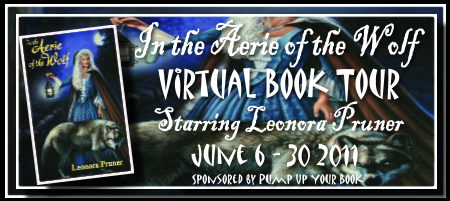One of the bonus entries to win the book is to leave a comment or question for Leonora Pruner about this post. You are also welcome to comment here without entering - this guest post is a fascinating opportunity to peek into this author's mind.
Writing about Human Life through Historical Fiction
Of the billions of people living on this planet, we are an interesting blend of being the same and yet unique. While physically much the same (head, hands, etc.), yet we are identifiable by our fingerprints and eyes along with the details of our appearance.
Take a look at human life in the past several millennia, and there is no basic change. Our environment has been affected by inventions which have impacted us in various ways. But, concerning the basics we are still the same. The characteristics of love, hate, pride, grief, joy, humor, desire to relate to others, to have families, to invent and change things, to learn, to cry, and many other traits are still common. If we read a play by Aristides, we can relate to the characters although their culture is far different. If you do a bit of “people watching” in a crowd, you may well find it fascinating just to observe what others are doing. We are curious about each other.
This is why I enjoy reading historical fiction. It opens a window to what life was like behind the data we might have studied in school. I am treated to a glimpse into human life at that time. Assuming the writer has done solid research, I can rediscover how much I am like those people and am able to relate to their situation through fiction.
Writing historical fiction is attractive to me. It allows me to visit another time and place, recreating life as it was then. How would people feel? What would they see and eat? What would they wear? How would they talk? When I wrote my first novel set in mid-18th century England, whenever I started typing or took up my pen, I was faced with new questions similar to these. They drove me to libraries to find answers and a great deal more. Fortunately, I could benefit from the wealth of material in the large library at the University of California at Santa Barbara. In addition, wherever the family went on vacation, I went to the library while the others shopped. So I enjoyed the resources of Los Angeles, San Francisco, New York, and the Library of Congress.
People in the past were much as we are today. And, I learned that some of the attitudes we have were then prevalent or taking form. Inventions were transforming agriculture, transportation, and communication and causing people to assume that science and technology could solve all problems. Global exploration expanded people’s perspective and international trade brought in exotic products impacting lifestyles – like tea and coffee and coffee houses. Globalization had begun.
In placing our human problems in a historic setting, we may see them more clearly and realize a way to deal with them creatively, strengthening our lives today.
While born in Dubuque, Iowa, Leonora Pruner was brought to California by her parents during the Second World War, which has since been her principal residence. In 1953, she graduated from Westmont College then earned an MBA from Pepperdine University in 1981. Having married in 1953, she has seen her family expand from two children to thirteen grandchildren and five great- grandchildren.
Writing has been an important activity since junior high. In the late ‘60s, an eighteenth-century English character on The Wonderful World of Disney, captivated her interest. The desire to create a variation of him, led to five years of extensive research, followed by the publication of two period novels in 1981 and 1987, Love’s Secret Storm, and Love’s Silent Gift. Feeling that all that research should be reused, eighteenth-century England continues as a setting for her work.
From 1987 to 1997, she lived in the Republic of Maldives collecting folklore and teaching economics and computer science. While there, she wrote the first drafts of Close to His Heart and The Aerie of the Wolf on her computer.


